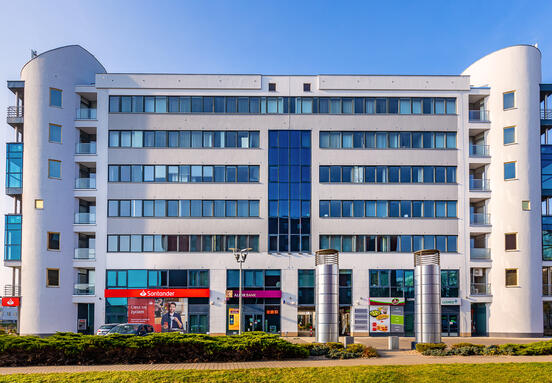Understanding Poland's New Integrated Investment Plans (ZPIs)
The 2023 amendment to Poland's Spatial Planning and Development Act introduces a game-changer for large-scale development: the Integrated Investment Plans (ZPIs). Designed to accelerate construction and foster improved cooperation between investors and local authorities, ZPIs offer a more dynamic path for complex building projects. For businesses seeking to establish new offices or warehouses, this represents a significant shift towards faster project realization and access to prime development locations across Poland.
Key Benefits for Businesses Seeking Office & Warehouse Space
Faster Project Implementation
One of the most compelling advantages of ZPIs is the significantly faster project implementation compared to traditional zoning plans (MPZP). This expedited timeline can dramatically reduce the lead time for businesses to acquire and develop new commercial spaces, allowing for quicker market entry or expansion.
Access to New Investment Locations
ZPIs are designed to open up previously inaccessible investment land, expanding the pool of potential sites for your next office or warehouse. This means more options in strategically important areas, providing businesses with greater flexibility in choosing optimal locations for their operations.
Streamlined Development Processes
Beyond speed, ZPIs aim to streamline the entire development process. By creating a unified framework for investor-municipality collaboration, they reduce bureaucratic hurdles and enhance clarity, making the journey from concept to completion smoother for commercial real estate investors.
The Urban Agreement: A Core Component
Central to the ZPI framework is the 'urban agreement.' This crucial document explicitly defines the investor's obligations, which often extend beyond the immediate building project to include the development of complementary infrastructure. This could involve constructing new roads, public transport facilities, or even social amenities. While adding to the investor's responsibilities, it ensures that new developments are well-integrated into the urban fabric and contribute positively to the local community, enhancing the overall value and appeal of the investment.
Navigating Potential Challenges and Considerations
Demands for Supplementary Investments
While beneficial for urban development, the urban agreement can entail significant demands for supplementary investments. For example, cities like Warsaw have outlined requirements for financial contributions, such as 5% of the commercial usable area value, to fund complementary projects. Businesses must factor these potential additional costs into their overall investment strategy.
Social Consultations and Municipal Plans
Successful ZPI implementation requires thorough social consultations and strict consistency with general municipal plans. Engaging with local communities and ensuring alignment with broader urban development strategies are critical steps that require careful management and planning.
Environmental Protection Measures
Modern ZPIs often incorporate robust environmental protection measures, reflecting a growing commitment to sustainable development. Investors should be prepared to meet these standards, which can contribute to the long-term value and appeal of their commercial properties.
Expert Support for ZPI Implementation
Navigating the intricacies of ZPIs, especially with varying city-specific guidelines, can be complex. Real estate advisory firms, such as Walter Herz, play a crucial role in supporting investors through this process. Their expertise ensures that businesses can effectively leverage the benefits of ZPIs while mitigating potential risks and complying with all regulatory requirements.
City-Specific Approaches: Warsaw and Kraków Lead the Way
Major Polish cities like Warsaw and Kraków have already developed specific guidelines for ZPI implementation, detailing financial contributions and environmental protection measures. This regional differentiation highlights the importance of localized expertise and careful due diligence when planning investments in different municipalities.
Conclusion: Seizing New Opportunities in Poland's Real Estate Market
Poland's Integrated Investment Plans (ZPIs) represent a significant evolution in commercial real estate development. By offering faster procedures, access to new investment locations, and a framework for enhanced cooperation, they create a fertile ground for businesses looking to expand or establish new office or warehouse facilities. While requiring careful planning and an understanding of the associated obligations, ZPIs undoubtedly streamline the path to successful real estate ventures in Poland.
Source: prestigepr.pl









